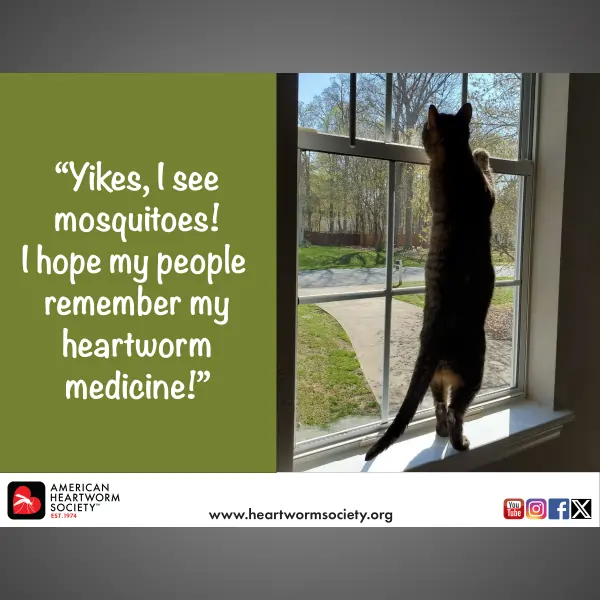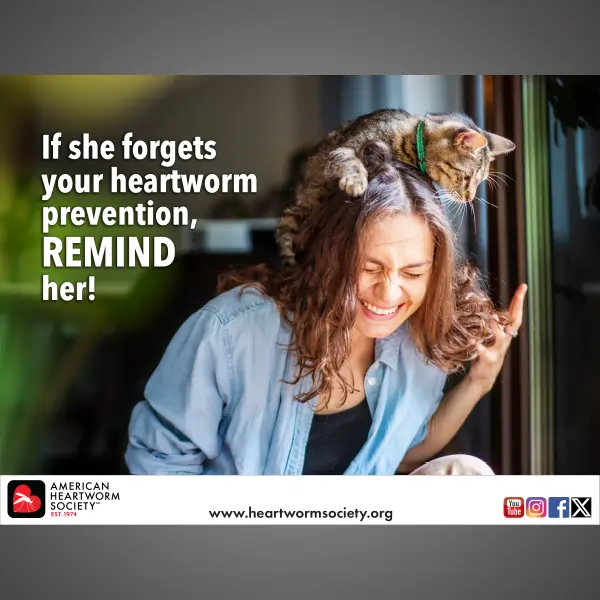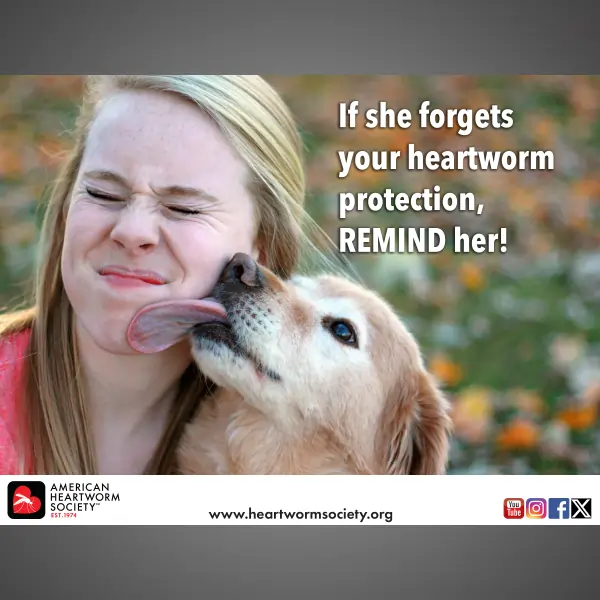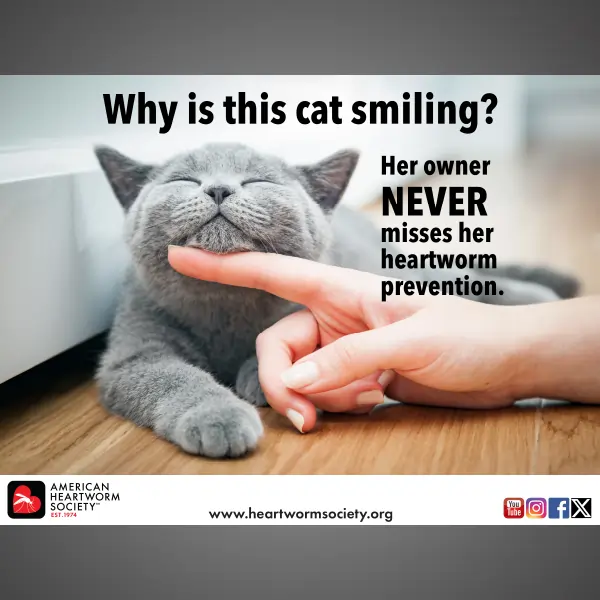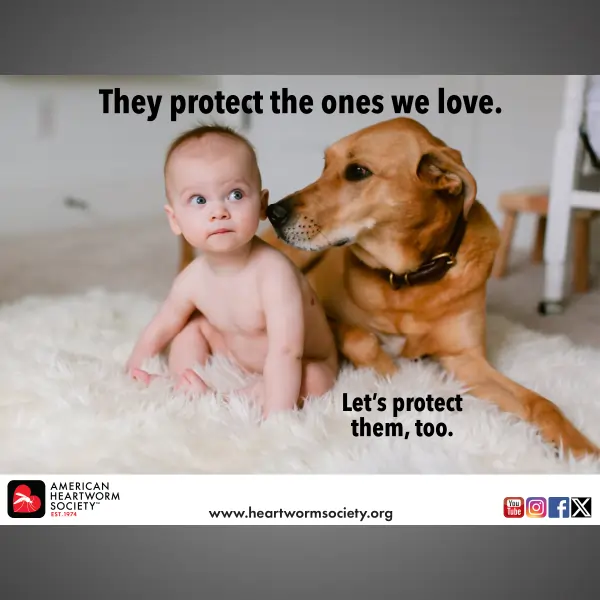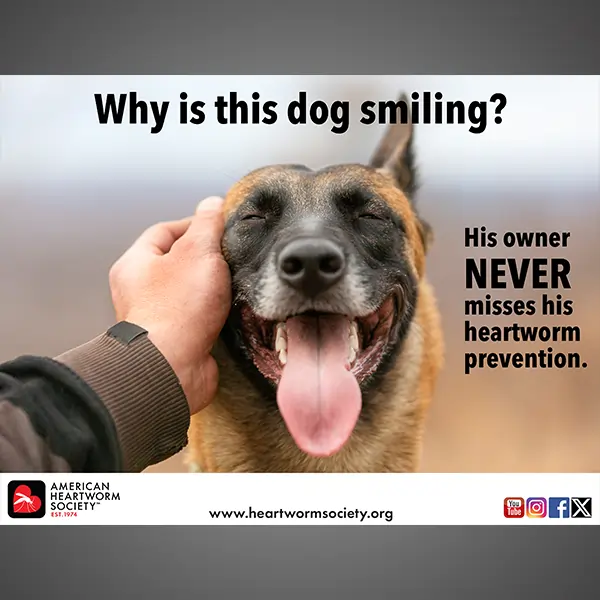Conditions under which a veterinarian can delay annual heartworm tests during the COVID crisis is just one of the topics covered in new recommendations released by the American Heartworm Society (AHS).
When warm weather hits, you will want to ramp up your heartworm education efforts. To help make this goal easy--and fun--the AHS has created a new set of posters to print or post on your social pages.
- To save or print a poster, just click on the image below, then click on the “download” button and save the PDF file.
- To save a poster for use on your social pages, simply open the downloaded poster, then right click on the file and follow the menu instructions to save the file as a JPEG image.
For more client tools, be sure to visit the Resource Center. And if you don’t already, make sure you’re sharing our Facebook and Instagram posts!












